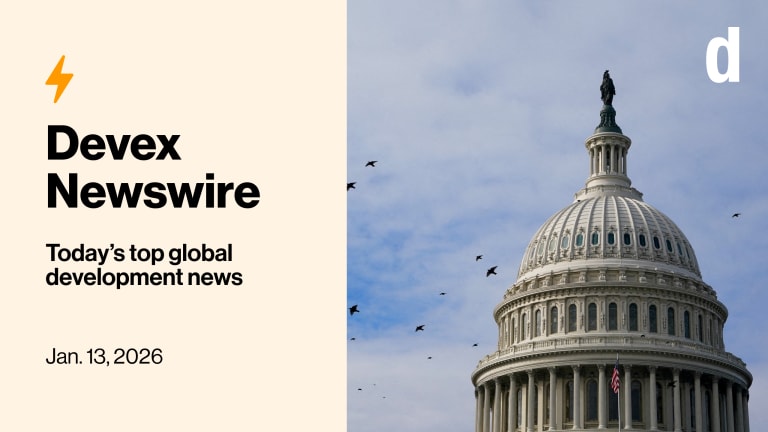
WASHINGTON — There had been relatively little in the way of public statements about President Donald Trump’s administration positions on Africa policy, but in speeches this week and at a congressional hearing, U.S. officials provided some insight.
The key themes that emerged as the guiding principles for U.S. policy in Africa are a focus on national security and economic development. There is also a strong narrative that the U.S. cannot do it alone and so other development agencies, countries, and companies all need to step up and partner with the U.S. on these issues.
“As we formulated the budget for FY18 we worked to reflect the president’s America first policy,” said Cheryl Anderson, acting assistant administrator in the Bureau for Africa at the U.S. Agency for International Development, adding that they also looked at foreign policy priorities and regions or programs where the agency could maximize its impact.
The budget cuts — the administration proposed cutting the State Department and USAID by about 30 percent — has led the agencies to make some difficult decisions, said Donald Yamamoto, the acting assistant secretary of the Bureau of African Affairs at the State Department. The sentiment was repeated throughout the hearing in response to questions about why specific programs were cut.
The focus of much of U.S. engagement on the continent will center on security, working to counter terrorism and protect U.S. strategic interests, he said.
“We remain committed to increasing economic growth and investing to advance peace and security, countering terrorism, promoting democracy and governance,” Yamamoto said.
The U.S. will also prioritize funding to countries recovering from conflict, in part because the biggest security threats thrive in weak, failing, or failed states, he said. The U.S. will continue efforts to reduce the possibility and impact of future pandemics and will continue to partner with allies on improving the enabling environment for businesses.
At USAID there are four primary budget priorities, according to Anderson: advancing national security through supporting those who promote peace; asserting U.S. influence and leadership; programs that spur the economic development of American people and African partners; and a focus on efficiency, effectiveness ,and accountability of American taxpayer dollars.
The needs “cannot be met by one nation alone,” Anderson said. The U.S. will be looking for other countries to do more — both donors and developing countries through domestic resource mobilization.
“To me America first doesn’t mean we abdicate a leadership role,” said Rep. Karen Bass, a Democrat from California and the ranking member of the House subcommittee on Africa. Both she and Rep. Chris Smith, a Republican from New Jersey and the chairman of the subcommittee, were critical of the budget cuts. Smith said that while he thinks Congress will restore some of the funding proposed to be cut by the administration, he was worried about the impacts of some of the cuts and the reorganization. Bass was critical of the cuts, questioning whether they had been thought through and suggesting the agencies examine outside contracting and see where that could be cut back, rather than cutting programs.
“This budget is short-sighted and full of contradictions,” she said.
As if to prove her point, later in the discussion Yamamoto spoke about the benefits of the Young African Leaders Initiative and its successes, but Bass was quick to point out that Trump’s proposed budget would cut a significant amount of funding from the program.
The proposed cuts include eliminating funding for the African Union and cutting or eliminating funds to individual countries. That doesn’t necessarily mean the AU or a given country won’t receive any funding, Anderson said. USAID will look to tap regional accounts to fund some of the priority areas, she said.
The U.S. will still work to facilitate trade and foster economic development on the continent, Yamamoto and Anderson said. USAID will continue to work to reduce time and cost of trade and work with regional trade and investment hubs, Anderson said. Feed the Future will continue, with a new set of target countries, and the agencies will “continue to prioritize resources in countries where we have good impact,” she said.
Part of the way the U.S. will work on those issues is by tapping into private entrepreneurship and working differently with the private sector. Mark Green said one of his key goals as administrator was aligning USAID’s focus around that issue at the Frontier 100 Forum.
He said USAID will play a convening role, incentivize and assist countries in making policy reform, provide technical assistance to help countries create smart targets and regulations and identify market failures and foster investments to close those gaps. But he called on the business leaders at the forum to help the government in identifying challenges or barriers to trade and also called on them to partner to drive economic growth.
Also at the forum, Jonathan Nash, the acting CEO of the Millennium Challenge Corp. talked about the agency’s footprint in Africa. It has 14 active programs in Africa and just recently the board approved a new $525 million compact for Ivory Coast. The active compacts will continue, but Nash did not indicate where future investments might go and if there would be a continued focus on the continent.
When more specifics will emerge, or how the reorganization process might affect staffing and missions on the continent, remains to be seen. And observers will be watching to see how policy plays out and if the continent will become less of a priority than it has been recent years.
What's the future of U.S. aid and development policy under the Trump administration? Read Devex news and analysis and subscribe to The Development Newswire.








